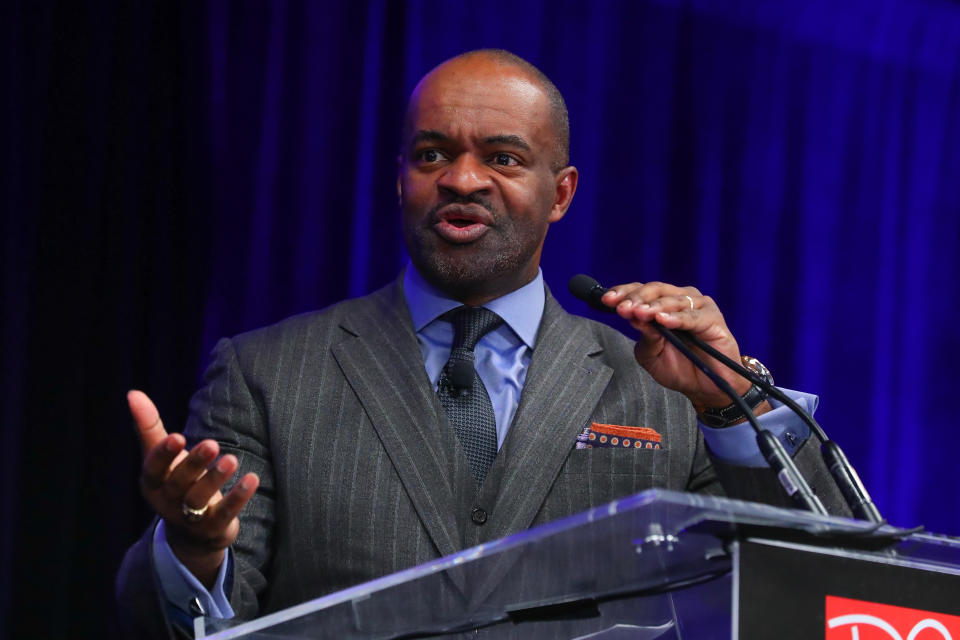Lost in the argument about a 17-game season, the NFL’s drug-testing policy is about to get more player-friendly
MIAMI — As NFL commissioner Roger Goodell and NFLPA executive director DeMaurice Smith have spent this week grappling over the last significant hurdles in a new collective-bargaining agreement, a sizable win for players has clearly been put to bed.
The league’s archaic and overly punitive marijuana policy — which has derailed an untold number of NFL careers over the years — is about to become far more player-friendly. Smith suggested as much earlier this month in a memo to NFL players, alerting them to tentative agreements on a few issues. One of those, according to Smith’s memo, was “significant modifications” to the NFL’s drug-testing policy, as well as the punitive measures (such as significant suspensions) that surround it.
Neither Goodell or Smith would address the finer points of what the league and union have already agreed upon, but a clear signal came in the NFLPA’s state of the union address on Thursday. Typically, Smith’s union address has been an event that has featured discussions or statements about how the league’s marijuana policies were negatively impacting careers during a time of nationally changing attitudes. But this year the union said nothing about the league’s drug policies, which is a fairly encouraging sign that it is happy with whatever measures the NFL has offered to take a less punitive stance.
In essence, by saying nothing about marijuana on Thursday, the union spoke volumes about a progressive step that is expected to be included in the next CBA.

With the two sides still circling each other over an expansion of the regular season and the all-important revenue split, no details have emerged about the coming changes regarding marijuana. But when reflecting on Smith’s highlighted language of “significant modifications” in his memo and the issue almost becoming an afterthought this week, it’s likely going to be something that could affect a multitude of players who have had their careers altered by failed tests for marijuana. Players like defensive ends Randy Gregory and David Irving — who have essentially seen their careers come to a crashing halt over failed marijuana tests — may suddenly be given new life under the next CBA.
However, for that to happen, the NFL and union will have to actually finish the deal in front of them. How quickly that can occur will hang at least partially on a meeting of NFL player representatives on Thursday night. With Smith presenting the current progress in talks with the NFL, it will fall on player representatives from the league’s 32 teams to give the union head approval to move in the final phase of negotiation with the league. Given that there still appears to be some friction over the league’s proposed 17-game schedule and the usual posturing over a revenue split, it’s not expected that any kind of substantial vote will fast-track the CBA coming out of this week. Players could authorize a set of guidelines for Smith that would put the CBA into a zone where players would be expected to pass an agreement. And that would essentially begin the process of closing a deal.
More from Yahoo Sports:

